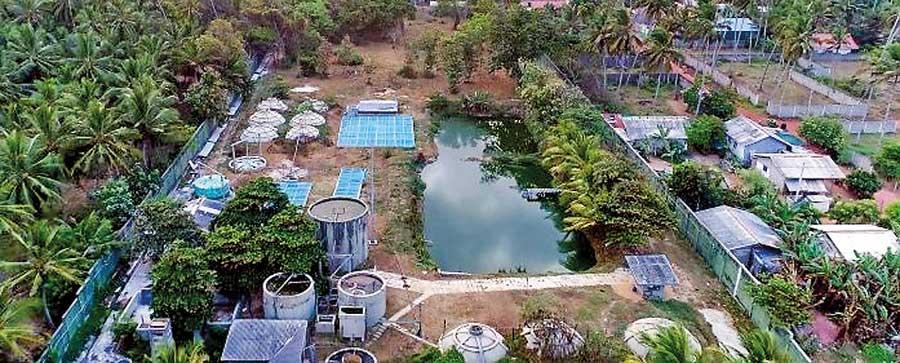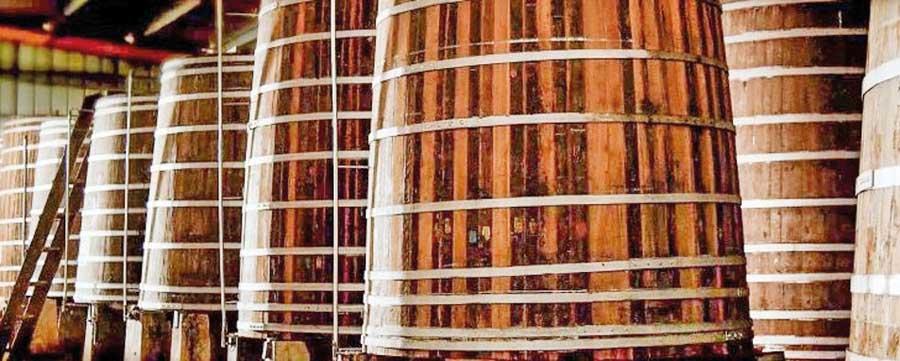03 Apr 2024 - {{hitsCtrl.values.hits}}

Rockland became the first and only distillery in Sri Lanka to achieve LEED Gold certification
The commitment to sustainability at Rockland Group dates back to 1924, with the establishment of our first distillery in Beruwala. The facility was strategically located on a hillside where the sloping terrain aided in the distillation process, eliminating the need for pumps. However, little did we expect that we would become Sri Lanka’s only and possibly the world’s first green distillery, having come a long way in achieving our green objectives and demonstrating our commitment to environmental stewardship in our operations.
distillery in Beruwala. The facility was strategically located on a hillside where the sloping terrain aided in the distillation process, eliminating the need for pumps. However, little did we expect that we would become Sri Lanka’s only and possibly the world’s first green distillery, having come a long way in achieving our green objectives and demonstrating our commitment to environmental stewardship in our operations.
With our organisation competing in the global arena, Rockland has been ahead of the curve in terms of compliancy and traceability. This plays an important role, especially in regions like the EU, which have recently encouraged producers to adhere to legislation promoting sustainable production and ESG compliance.
Becoming Sri Lanka’s first green distillery
Rockland has continued to adopt environmentally friendly practices, including implementing energy-saving mechanisms like solar and automation.
Embracing an efficiency-focused culture from the outset, we discovered that many aspects of our operations were already aligned with Leadership in Energy and Environmental Design (LEED) certification requirements. Minor adjustments were all that was needed to achieve certification. The rigorous assessment framework demanded comprehensive accountability throughout our operations, covering waste disposal to transportation carbon emissions.
Remarkably, within just three months, Rockland became the first and only distillery in Sri Lanka to achieve LEED Gold certification, placing us among the few companies in the country to receive such recognition. This honour was bestowed by the U.S. Green Building Council, the foremost authority on green buildings and communities worldwide.
Being certified as Sri Lanka’s first green distillery has positioned Rockland as pioneers in the industry, igniting immense organisational pride in spearheading sustainability. This achievement has not only endorsed the company’s brand equity overseas but also put Sri Lanka on the map as a country that adheres to standardisation and embraces quality in all that we do.
Rockland distillery’s approach to waste minimisation
Central to our ethos is waste minimisation, guiding our processes to follow a ‘reduce, reuse and recycle’ process across various domains. From nurturing Halmilla trees for aging vats to using effluent sludge as nutrients for coconut trees, we explore imaginative avenues for recycling.
The distillery consists of an open-air water recycling tank and system to repurpose hot water from the distillation process, saving 30,000 litres of water daily. Utilising a process of anaerobic and aerobic digestion by natural bacteria, although costly, remains a top priority in our production practices.
To enhance energy efficiency, we produce 14,400 cubic meters of biogas annually, captured in large purpose-built tanks. These gases serve as fuel for our renewable biomass boiler, providing heat for distillation. This reduces our annual fuel consumption by almost 50,000 kilogrammes of firewood, lessening the requirement for additional firewood sourced from sustainable forests certified by the forest department.
Our comprehensive efficiency initiatives have allowed us to generate four times the required solar energy, emphasising our unwavering commitment to renewable resources and sustainability.
Sustainable agricultural innovation for a greener future
Rockland is dedicated to innovating agricultural practices to maximise productivity. We continually develop our coconut estates while ensuring that we source quality produce from across the world. One of our significant collaborations is with the Coconut Research Institute, which has facilitated the design and development of high-yielding coconut cultivars, allowing us to plant more trees in smaller acres. We’re also exploring innovative techniques to reduce the need for manual climbing and tapping.
Looking ahead, our company has an ambitious goal not only to achieve carbon neutrality but also to become ‘carbon negative’ by prioritising efficiency, innovation and environmental responsibility.
(Devinda de Silva is Operations Director at Rockland Group)

29 Nov 2024 22 minute ago
29 Nov 2024 47 minute ago
29 Nov 2024 1 hours ago
29 Nov 2024 2 hours ago
29 Nov 2024 4 hours ago